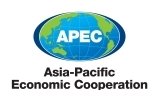Thursday, 26 February 2026
Singapore launches Food Security Roadmap to protect food systems
The roadmap, aligned with New Zealand’s APEC 2021 priorities as well as the APEC Putrajaya Vision 2040 Singapore Agriculture and food ministers from the 21 APEC member economies reaffirmed their…

The roadmap, aligned with New Zealand’s APEC 2021 priorities as well as the APEC Putrajaya Vision 2040
Singapore Agriculture and food ministers from the 21 APEC member economies reaffirmed their commitment to an open, transparent, productive, sustainable and resilient APEC food system by launching a new 10-year food security roadmap.
Nearly 2.37 billion people lacked access to adequate food in 2020, a rise of 320 million in just one year, according to a World Bank policy brief. A report by the Global Network Against Food Crises (GNAFC) found that the number of people facing acute food insecurity who need urgent life and livelihood-saving assistance hit a five-year high in 2020.
Against this backdrop, APEC ministers convened at their annual APEC Ministerial Meeting on Food Security on Thursday, chaired by New Zealand Minister of Agriculture Damien O’Connor, and adopted the APEC Food Security Roadmap Towards 2030.
The roadmap details goals and key action areas where APEC is well placed to help ensure people always have access to sufficient, safe, affordable and nutritious food to meet their dietary needs and food preferences for an active and healthy life.
APEC 2040 vision is to deliver an open, dynamic, peaceful and resilient region. The roadmap, aligned with New Zealand’s APEC 2021 priorities as well as the APEC Putrajaya Vision 2040, incorporates four key areas of focus:
- Digitalization and innovation: using digital levers to drive food sustainability
- Productivity: prioritizing systems that are fit for purpose
- Inclusivity: ensuring that underrepresented groups are set up to thrive
- Sustainability: tackling climate change and environmental challenges
“Besides our effort to address the challenges of food security, the roadmap also emphasizes efforts in increasing productivity and efficiency, minimizing food waste, mitigating and adapting to climate change as well as reducing costs and facilitating food trade,” added Philip Houlding, Chair of the APEC Policy Partnership on Food Security. The group spearheaded the development of the roadmap and drives public-private sector engagement on all aspects of food security in the region.
Technology
Deakin University and Bellarine Foods Partner to Develop Sustainable Marine-Derived Proteins
Feb 26, 2026 | Australia
Royal Unveils Refreshed Jute Bag Design for 20lb Authentic Basmati
Feb 25, 2026 | Company News
Australian Medical Bodies Push for Compulsory Health Star Labelling
Feb 24, 2026 | Australia
Food Testing
Australian Medical Bodies Push for Compulsory Health Star Labelling
Feb 24, 2026 | Australia
Tim Hortons Singapore Secures Majlis Ugama Islam Singapura Halal Certification Ahead of Ramadan
Feb 23, 2026 | Company News
More Popular
UAE’s Cult Mochi Brand MOISHI Makes India Entry with CK Israni Group
Feb 26, 2026 | Company News
Roquette Launches Breakthrough Clean-Tasting Pea Protein Isolate
Feb 26, 2026 | Company News
Affron Saffron Attains First Stress Relief Claim by South Korean Ministry of Food and Drug Safety
Feb 26, 2026 | Company News





